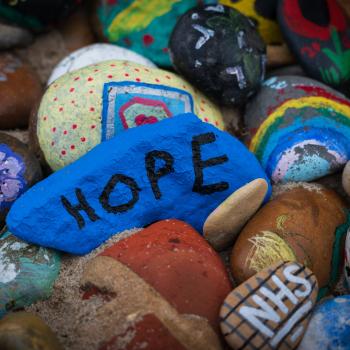Relationships are built on trust. An abundance of it leads to thriving. An absence of it is toxic. The hard thing about trust is how fickle it can be. Trust wavers based on our attitudes, our circumstances, and our expectations. It shifts with the stories we create in our heads and the trials we face.
While shifting circumstances constantly try our ability to trust one another, like waves crashing against an oceanic vessel, they do not control our choices. They are not the vessel itself. Here are three things we can do to shore up our vessel so that it can stand the storms of life and give us the best chance to trust one another.

Own It
Trust is a choice. It is a synonym of belief. Of faith. There is always an element of risk to it. This cannot be avoided. We try to act like trust is a transaction, an exchange or reward for good behavior. But this is only partially true. We “earn trust” by proving ourselves reliable. But even the most faithful can cheat on any given day. Past behavior is no guarantee of future.
Sometimes, we try to use trust (or the threat of mistrust) as a weapon. We try to use it as a bargaining chip or a tool for manipulation. We withhold our trust as a punishment, to try to get the other to do what we want them to do. In reality, we are manipulating our self, poisoning our own perspective, and shortcutting our choices.
If we want to foster trust in relationships, we have to own the fact that trust is a choice. A vulnerable own. A risky one. We cannot trust without “putting ourselves out there”.
Sharing Truth
If trust is a vulnerable act, the best thing we can do to foster trust is to pursue truth. The people we are in relationship with are a lot like us. We don’t want to be manipulated, used, or bamboozled. We don’t want to be lied to or controlled.
Our superficial world is obsessed with trying to put our best foot forward. We try to cover mistakes, hide true intentions, and avoid the consequences of our shortcomings. We even deceive ourselves.
This complicates trust for obvious reasons. There are layers of defenses, a myriad of excuses, and a giant bag of tricks that we all use to try to get affirmed and control our circumstances. If we want trust in our relationships, we need to seek truth. Even if it hurts. Even if it is ugly and messy and will cause conflict in the short-term. Truth is the seed of trust. Without it, the intimacy of our relationships cannot grow. We will always be trying to trick one another unless we can agree that truth is a transcendent principle that will guide our relationships.
Truth in relationships comes in a variety of ways. Facts are truth. Emotions are truth. Fears are truth. None of these things are the full truth by themselves. But all of them are ingredients in the recipe for truth. We often avoid one truth by focusing on another – for example, I share the truth of my intentions as if that negates the reality of the action itself and its consequences. We don’t get to pick and chose which truths we like and which we want to share. This is just another tactic of manipulation.
Communication
![]()
The pathway to truth is communication. The complicated thing about relationships is that we need trust (a feeling of safety) to be able to communicate effectively, but we need to communicate effectively in order to build trust. This doesn’t mean we are stuck and can’t do either. This just indicates that the two grow up together, they progress hand in hand.
As we communicated the truth of what happened, we build a foundation of trust. When we share how we feel, expressing it honestly but not giving our emotions a monopoly on truth, we are building walls of trust. When we communicate our deepest values, our secret fears, and our truest longings, we are building a roof and rooms and an interior for our relationship – a place we can live.
Sharing truth builds trust. And communication helps us dig into the truth. It is hard work. It can be frustrating and difficult. Everything worth doing is. The alternative is a relationship shackled in distrust.












